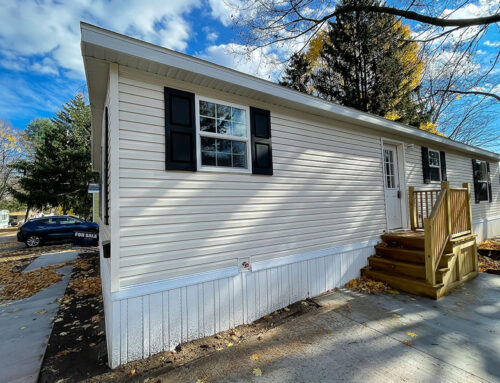Taylor, my daughter’s math tutor, mentioned the last time he was here that after finishing his studies he was thinking of going into real estate investing on the side. Getting a business degree was important to his family and he admitted to seeing the value of having Carnegie Mellon’s Tepper School of Business on his resume. But, that didn’t change his yearning to become an entrepreneur or his suspicion that investing in Pennsylvania real estate, like me, was a great way to go about it. In fact, he’d already assigned himself the homework of learning where he might find the best leads on distressed homes and discovered that many investors buy property from auctions like the local Sheriff’s Sale. But, he also felt that he was getting a lot of mixed signals. So, he asked, “How does a Sheriff Sale work in Allegheny County?” I was happy to teach him everything I know.
How Does a Sheriff Sale Work in Allegheny County?
One thing I was quick to mention to Taylor was that there are lots of ways to learn about investing but you need to vet your source. A successful career as an investor doesn’t hinge on a college education in real estate investing, so there’s no need for him to derail regular classes and postpone his degree to the tune of thousands of dollars. Of course, I also suggested he shouldn’t give much weight to what he hears on how to successfully buy, rehab, and sell houses from most other sources, either—unless those sources were successful themselves and had his best interests at heart. And, when it came specifically to whether or not he could grab some good deals from Allegheny County’s Sheriff Sale, most investors, I told him, got it wrong.
Anyone could, in theory, use investment property purchased from the Sheriff’s Sale to help grow a real estate portfolio. Auctions on real estate happen on the first Monday of each month at the Allegheny County Courthouse on Grant Street, potentially giving you year-round opportunities to bid on, and buy, real estate at below market value. And, since most of the houses sold at these sales have been sent by court order to help lien holders recoup some or all of their costs, starting bids are often set at the minimum needed to satisfy the judgment and court fees. Depending on how much is owed on the property, you could walk away having paid only a fraction of what the property is worth. If you can also keep your renovation costs low, your chances for realizing returns on some of these homes are potentially big.
Fortunately, the properties being auctioned in Allegheny County are advertised three weeks ahead of each sale in the Post Gazette and the Pittsburgh Legal Journal, which can help you with research. If you check these publications on a regular basis, you will know the addresses of the homes being auctioned. At the very least, that may help you conduct a title search and perform some due diligence on the property. In fact, the Sheriff’s Office recommends you do so.
The advantages of winning an auction property from the Sheriff’s Sale, however, don’t come without strings attached. On the day of the sale, for example, you have to arrive with a deposit worth 10% of your maximum bid, payable by cash, cashier’s check, money order, or attorney’s check. So, you have to have an idea before the auction even begins how much you’re willing to invest. As long as you’ve got a reliable real estate investment analysis and valuation tool handy, as well as full access to the property, determining your max bid amount shouldn’t be difficult. But, getting inside the house just might be. The Sheriff’s Office doesn’t provide access to the properties. Since you also have to close on the property the same week as the auction, you might just have to hope you got your bidding number right.
Even then, there are some troubles that you should be on the lookout for. Here’s a few that I named for Taylor:
- Unknown property condition. Though the Sheriff’s Office encourages you to call them directly if you need more information, they also make no guarantees about the condition of the houses they auction or whether there are any additional liens or encumbrances attached that were not properly disclosed. So, getting the full picture of what you’re getting into by buying one of these homes is up to you and the limited view you’re given. And, unfortunately, that could lead you right into money pit territory—especially without also being able to work in a home inspection.
- Financial risk. Your troubles with buying auctions homes don’t stop at having a lack of information. Should you win a bid, then want to back out, you lose your deposit. If you simply can’t pay the balance on time—for any reason—you lose the property and your deposit.
- Fierce competition. Investor competition can be overwhelming, driving bids way beyond reason. If you don’t keep your wits about you, you could unwittingly bid too high just to outbid the next guy—or the bank, for that matter. Assuming the sale doesn’t get canceled due to bankruptcy proceedings or the previous owner’s sudden ability to bring all debts current, there are just too many opportunities for you to risk losing money on bidding on a house from this auction.
The reality is that you and the homeowners who are in danger of losing their houses are going to be much better off if you can connect with one another long before a property ends up at an auction. Luckily, many distressed homeowners in Allegheny County know where to turn for better “solutions for ugly situations®”. And, it’s the same place you can turn to find them.
Find the Distressed Homeowners in Allegheny County
The first time I attended the Allegheny County Sheriff Sale, I got schooled big time. And, I’d even been warned by another, more experienced investor to be suspicious of the houses sold there. But, thinking I’d fare better than those before me who had overpaid for properties or just wasted their time almost doing the same, I went to the auction and won the highest bid on a house. Then, many months and a lot of expensive renovations later, I sold the house—at a loss.
Though I recovered and learned my lesson, the fact remained that I needed a way to build my Pittsburgh portfolio with qualified leads that converted into good deals. When I learned that by becoming an independently owned and operated HomeVestors® franchisee, those distressed homeowners would be looking for me, I called the famous “We Buy Ugly Houses®” team immediately. With all the marketing tools and resources made available to franchisees, I couldn’t see any reason not to. And, after my talk with Taylor, neither could he—especially since he’d also get training and support in the field that can’t be found in a traditional classroom.
To learn how to invest in Allegheny County real estate, call HomeVestors® about becoming an independently owned and operated Pennsylvania franchisee today.
Each franchise office is independently owned and operated.
Contact
"*" indicates required fields





